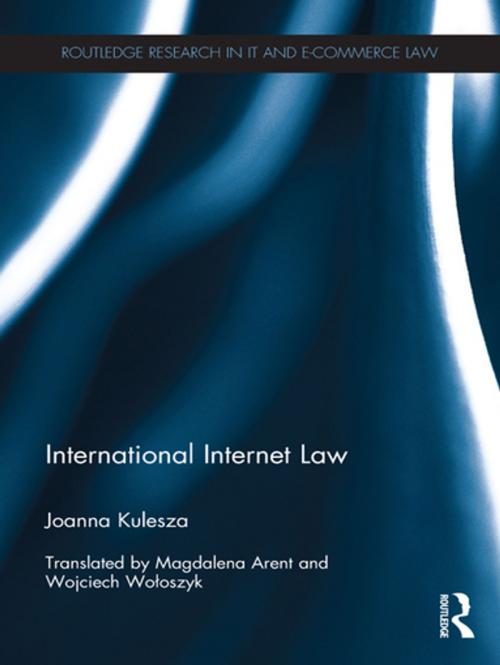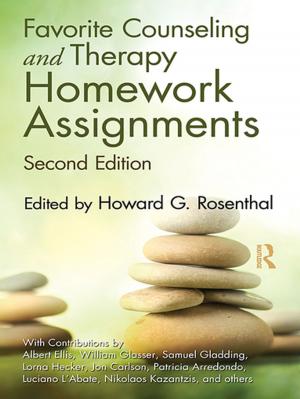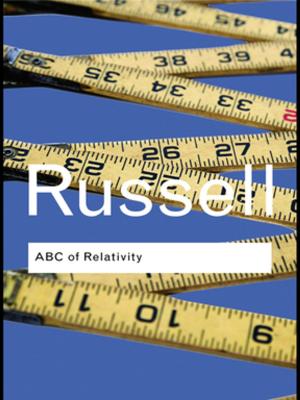International Internet Law
Nonfiction, Reference & Language, Law, Science & Technology, Computers, Advanced Computing, Information Technology, Internet| Author: | Joanna Kulesza | ISBN: | 9781136337949 |
| Publisher: | Taylor and Francis | Publication: | March 15, 2012 |
| Imprint: | Routledge | Language: | English |
| Author: | Joanna Kulesza |
| ISBN: | 9781136337949 |
| Publisher: | Taylor and Francis |
| Publication: | March 15, 2012 |
| Imprint: | Routledge |
| Language: | English |
This book discusses the international legal issues underlying Internet Governance and proposes an international solution to its problems. The book encompasses a wide spectrum of current debate surrounding the governance of the internet and focuses on the areas and issues which urgently require attention from the international community in order to sustain the proper functioning of the global network that forms the foundation of our information fuelled society. Among the topics discussed are international copyright protection, state responsibility for cyber-attacks (cyberterrorism), and international on-line privacy protection.
Taking a comparative approach by examining how different jurisdictions such as the United States, the European Union, China and Singapore have attempted various solutions to the problem of Internet Governance, the author offers a practical solution to the problem and is a proponent of International Internet Law. Kulesza suggests that just as in the case of International Environmental Law, an Internet Framework Convention could shape the starting point for international cooperation and lead to a clear, contractual division of state jurisdictional competences.
International Internet Law is of particular interest to legal scholars engaged with the current challenges in international law and international relations, as well as students of law, international relations and political science. The issues discussed in the book are also relevant to journalists and other media professionals, facing the challenges of analyzing current international developments in cyberspace.
This book discusses the international legal issues underlying Internet Governance and proposes an international solution to its problems. The book encompasses a wide spectrum of current debate surrounding the governance of the internet and focuses on the areas and issues which urgently require attention from the international community in order to sustain the proper functioning of the global network that forms the foundation of our information fuelled society. Among the topics discussed are international copyright protection, state responsibility for cyber-attacks (cyberterrorism), and international on-line privacy protection.
Taking a comparative approach by examining how different jurisdictions such as the United States, the European Union, China and Singapore have attempted various solutions to the problem of Internet Governance, the author offers a practical solution to the problem and is a proponent of International Internet Law. Kulesza suggests that just as in the case of International Environmental Law, an Internet Framework Convention could shape the starting point for international cooperation and lead to a clear, contractual division of state jurisdictional competences.
International Internet Law is of particular interest to legal scholars engaged with the current challenges in international law and international relations, as well as students of law, international relations and political science. The issues discussed in the book are also relevant to journalists and other media professionals, facing the challenges of analyzing current international developments in cyberspace.















